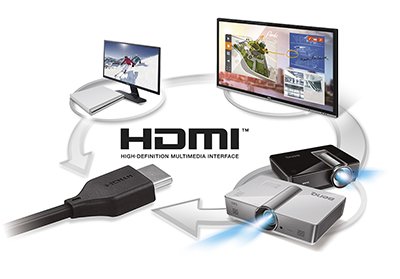How To Use A/V Devices with Wireless Presentation Systems
- BenQ
- 2019-08-13

Every wireless presentation system today will work with the major notebook platforms such as Windows and Mac OS, but what about other wired legacy sources and AV devices such as a Blu-ray player? Because most wireless presentation systems require proprietary software to run, these commonly used devices are not supported.
The ability of an enterprise collaboration system to display the miniature details of a prototype sample using a document camera or demonstrate a program on a Raspberry Pi can be an important part of brainstorming and collaboration. Forward thinking managers look for flexibility in presentation systems to enable their teams to seamlessly integrate with a wide variety of devices, such as video conference systems, digital microscopes, gaming consoles, Raspberry Pi, DSLR cameras, and even some that haven’t been invented yet.
Furthermore, it doesn’t make sense to rely on manufacturers to write applications for every operating system or device that you may want to use in your meetings. The solution? An app-free wireless presentation solution such as the BenQ InstaShow, that will work with practically any device that outputs an HDMI signal.
The InstaShow is a software-free and app-free wireless presentation system. This enables many types of AV devices to share content in huddle rooms, conference rooms, science labs, meeting rooms, gaming tournaments, shared workspaces, and other collaborative environments. Here are some examples of devices that can be connected to an InstaShow button:
- Video conference systems
- Document cameras
- DSLR and digital cameras
- Webcams
- Blu-ray/DVD
- Gaming consoles
- DVRs
- Digital signage
- Satellite receiver
- Cable TV receiver
- RF modulator HDMI box
- Gaming monitors to share streams
- Laser projectors for event staging
- Mac monitors with Thunderbolt 3 output
- Chromebooks
- Chrome Bit
- Chrome Box
- Raspberry Pi
- Arduino
- Beagle Board
Connecting an AV device to the InstaShow is a straightforward and painless process that anyone can do. For devices such as a BrightSign digital signage player, Raspberry Pi, gaming console, or even a DVR set-top box, you simply plug in the HDMI and USB cables from the InstaShow HDMI button into the ports on the device and instantly start sharing.

For devices that only have an HDMI port, such as a DSLR camera or digital microscope, connect the InstaShow to your device’s HDMI output port, then attach the USB cable to a power source like a portable power bank or cell phone USB power adapter. When the light turns green, press the button on the InstaShow for worry-free secure collaboration on your projector or other shared device.
If your device happens to have a USB-C or Thunderbolt port in place of HDMI, simply connect with a InstaShow USB-C button. This provides a single cable connection to newer MacBooks, Windows notebooks, Chromebooks, and even transmit from properly equipped Thunderbolt 3 monitors like the BenQ PD3220U and PD2720U so you can connect, press, and present just seconds.
The InstaShow receiver host can support up to 16 different devices. Once the buttons are connected to your device of choice, the light on the button will change from red to green to signal that it is ready to present. For engineering labs and marketing collaboration tools with multiple devices, the InstaShow can save the cost of having to secure and program expensive HDMI matrix switchers that can cost your organization thousands.
The InstaShow’s ability to securely share wireless HDMI content from virtually any legacy AV source device makes it the ideal choice for a flexible wireless collaboration solution for any contemporary office environment. Since no software is required, it makes it easy to accommodate devices ranging from secured “locked down” notebooks to gaming consoles, making it the perfect solution for companies looking for creative teamwork tools that can adapt to changing needs over time.
Recommended Articles
-
Unpublished: {/content/newb2b/en-ap/archive/connect-android-phone-tv-1}
-
Best Way to Connect Your Chromebook Laptop to a Projector?
This article explores the best ways to connect your Chromebook laptop to a shared projector or TV. It also discusses how to connect wirelessly.
2020.05.22 -
Trends & Knowledge
What Is Screen Mirroring?
Screen mirroring is a technology that allows you to wirelessly view content from your laptop or mobile device on a bigger screen. Learn more about what is screen mirroring and its features.
2019.07.24